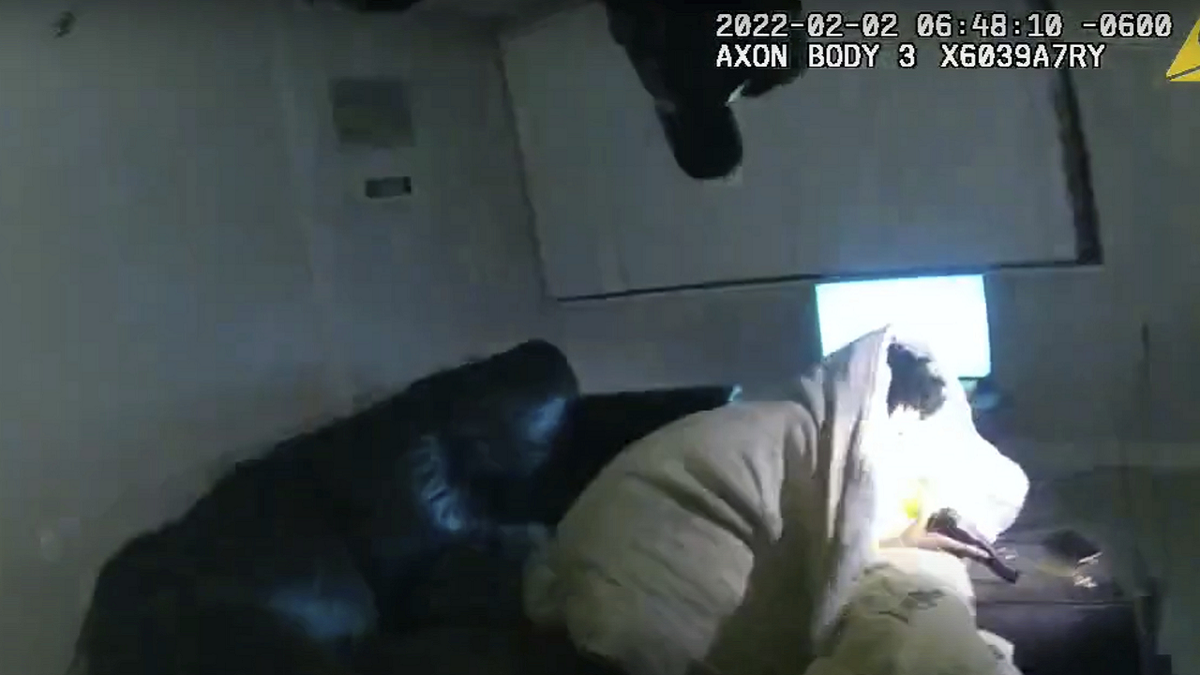Fox News Flash top headlines for February 4
Fox News Flash top headlines are here. Check out what's clicking on Foxnews.com.
Minneapolis has released bodycam footage showing the moment Amir Locke, an armed 22-year-old Black man, was shot by a SWAT team executing a search warrant in a homicide investigation.
The family of Locke -- who later died at a local hospital -- is now preparing to hold a news conference Friday as their attorney Ben Crump is comparing the officer-involved shooting to the 2020 raid in which law enforcement killed Breonna Taylor in her home in Louisville, Kentucky, which led to nationwide calls for police reform.
"Police search warrant! Police search warrant!" officers are heard yelling in the video clip after keying their way into an apartment early Wednesday morning. Moments after one of the SWAT team members asks Locke to "show me your hands", Officer Mark Hanneman is seen opening fire three times at him.
WARNING: GRAPHIC CONTENT AND LANGUAGE
"Approximately 9 seconds into the entry, officers encountered a male who was armed with a handgun pointed in the direction of officers," Minneapolis police said in a statement, alongside photographs of a gun they say they recovered at the scene. The footage also shows Locke, who was partially under a blanket at the time of the raid, holding what appears to be a handgun.
GEORGE FLOYD DEATH: TRIAL OF 3 COPS DELAYED BY COVID-19 POSITIVE TEST
Nekima Levy Armstrong, a civil rights attorney and prominent community activist, whom Mayor Jacob Frey appointed last year as co-chair on a community safety work group, said Locke's family told her Locke was a licensed gun owner with a concealed carry permit, that he didn’t live in the apartment, that police had not been looking for him and that he wasn't one of three suspects named in the warrant.
Interim Police Chief Amelia Huffman said in a news conference after the video was released that Locke isn't named in the warrants. She said it isn't clear how or whether Locke is connected to the homicide investigation, which she said is under the control of the St. Paul Police Department. That agency has released few details so far and the warrants weren't publicly available Thursday.

In this image taken from Minneapolis Police Department body camera video and released by the city of Minneapolis, 22-year-old Amir Locke is wrapped in a blanket on a couch holding a gun moments before he was fatally shot by Minneapolis police as they were executing a search warrant in a homicide investigation. (AP/Minneapolis Police Department)
Frey said the video "raises about as many questions as it does answers" and said the city was pursuing those answers "as quickly as possible and in transparent fashion" through investigations including one by the state Bureau of Criminal Apprehension.
Huffman said the officer, identified as Hanneman, was in a difficult position.
"The still shot shows the image of the firearm in the subject’s hands, at the best possible moment when the lighting was fully on him. That’s the moment when the officer had to make a split-second decision to assess the circumstances and to determine whether he felt like there was an articulable threat, that the threat was of imminent harm, great bodily harm or death, and that he needed to take action right then to protect himself and his partners," she said.

A gun that police recovered the scene of the shooting.
Hanneman was hired in 2015. Records released by the city showed three complaints, all closed without discipline, but gave no details. Data on the website of the citizen group Communities United Against Police Brutality showed a fourth complaint, in 2018, that remains open. No details were given.
CLICK HERE TO GET THE FOX NEWS APP
In a statement, Crump compared Locke's shooting to the death of Breonna Taylor.
"Like the case of Breonna Taylor, the tragic killing of Amir Locke shows a pattern of no-knock warrants having deadly consequences for Black Americans. This is yet another example of why we need to put an end to these kinds of search warrants so that one day, Black Americans will be able to sleep safely in their beds at night," Crump said.
The Associated Press contributed to this report.












































